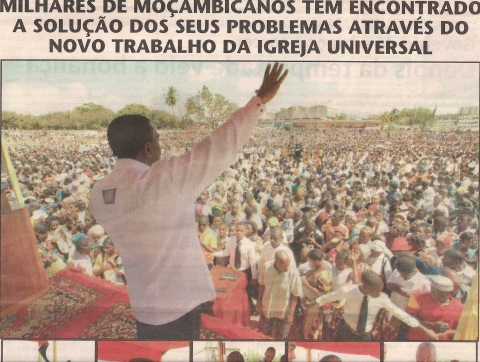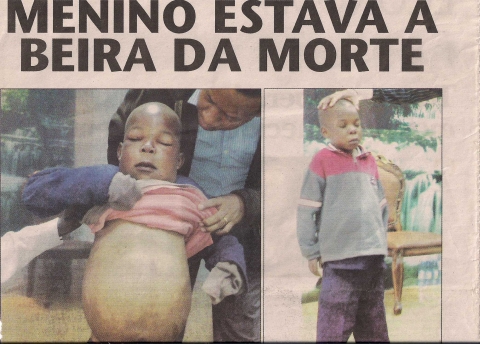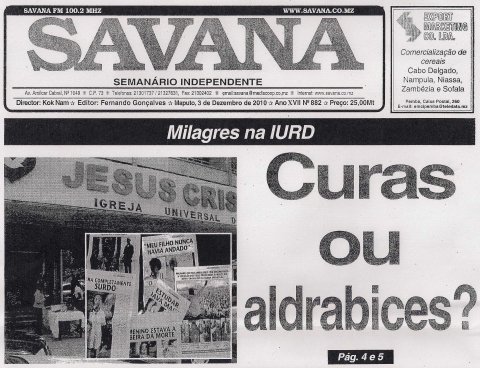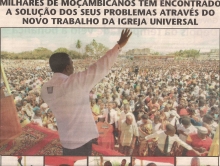


Our front page story: Cures or tricks?

The prophet refers to last week’s front-page story in the weekly SAVANA about the advertisements of the Universal Church of the Kingdom of God, a Pentecostal sect from Brazil, guaranteeing that its pastors will cure any disease – cancer, heart conditions, deafness - more effectively than both modern and traditional medicine.
The danger is that people may choose the pastor over the doctor and miracles over medicines in this poor country with a high burden of infectious diseases. In Angola, AIDS officials complain that many patients quit antiretroviral treatment and instead seek miracles at IURD.
The story quoted health experts who criticize the ads. No wonder the prophet was angry.
“We find this publicity to be deceitful and condemn it,” said Leonardo Chavane, spokesperson for the Ministry of Health.

IURD preaches that all suffering, poverty and disease happens because of the devil, a bad spell or witchcraft. But you are protected if you join IURD, say the ads.
Economic empire
With more than six million believers, 40 bishops and 7,000 pastors worldwide, IURD is one of the largest Brazilian multinational companies. In Mozambique, among other worldly possessions, it owns a TV station and a radio and a newly built high rise building in central Maputo.
Analysts estimate IURD’s global annual turnover to be US$1 billion, more than many tax-paying businesses. As a church, IURD is tax-exempt.
Years ago, SAVANA’s founding editor Carlos Cardoso argued that IURD is a commercial enterprise and should not be tax-exempt. The church retaliated by holding prayer services against SAVANA and Cardoso.
SAVANA does not carry IURD ads and was free to run the story. Other media keep mum because IURD is a big advertiser, vast and powerful. Fearing reprisals, our reporter used a pseudonym.
Fear and violence
You could feel fear at the pavilion. Fear rose as dozens of women became possessed by the devil, were subdued by uniformed monitors and carried, kicking and shrieking, to the stage. The monitors held their neck tight and wrapped them in a kapulana (traditional cloth) to restrain them.
The prophet ordered one possessed woman to go around the pavilion, seeking other devils lodged in believers. She ran, screaming, up and down the steps, and as she passed, other women became possessed, in a rage of guttural sounds and convulsions.
I have attended voodoo ceremonies in the sugarcane plantations of Haiti and Santo Domingo, candomble in Rio de Janeiro and santeria in Havana, but never felt such a negative energy flowing during the ceremony as in Maxaquene.
Part is the Nazi-like scale of the choreographed pageantry and skillful crowd manipulation, complete with horror-movie type music. Part was the blind belief of people, obeying the commands to open the bottle of sulphur water, wave the green slip of paper with the names of demons, and speak in tongues.
Part is knowing that horrible violence happens in Mozambique in the name of witchcraft and churches.
In March 2009, two elderly traditional healers, a brother and sister, Joao and Percina Simbine, were hacked to pieces and burnt in their modest home in Matola, near Maputo. The killers were their four nieces, aged 22 to 35, who accused them of having caused the death of several relatives, and demanded they quit their profession and convert to a Christian faith.

After the story appeared, possibly prompted by the calls of officials to regulate its deceptive publicity, IURD toned down in its ads the claims of cures and stressed protection against witchcraft.